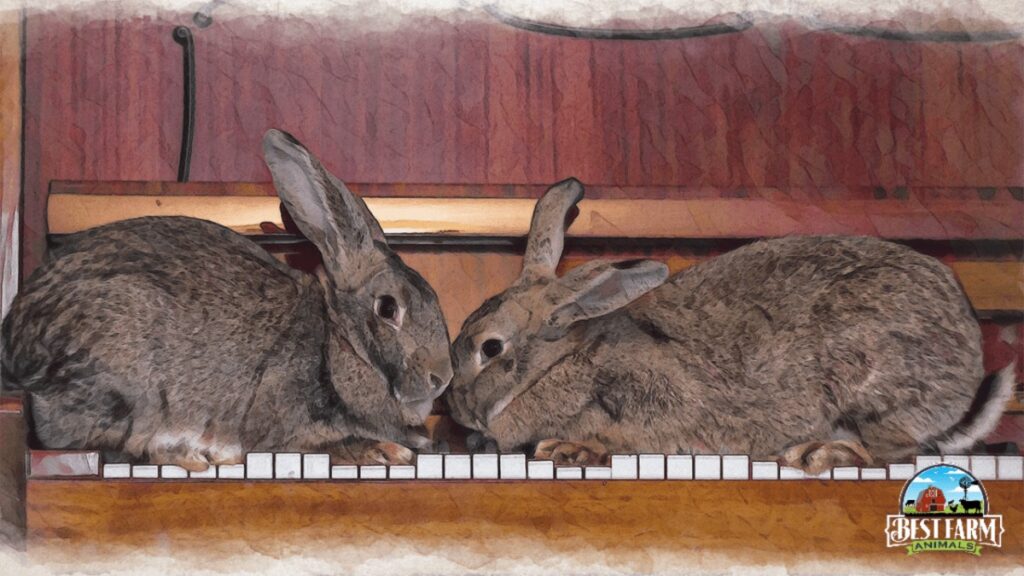The joy that comes with welcoming a litter of newborn rabbits can be tempered by the sudden bunny death. The baby seemed fine that morning, and then suddenly died. What went wrong? These fragile creatures can be intimidating to care for (See our full guide)
Skip Ahead
- 11 Reasons Rabbits Die Suddenly
- 1. Bunnies Die All of a Sudden Because of Heart Attacks
- 2. Baby Rabbits Can Die From Cold
- 3. Overheating in Baby Rabbits Can Happen Often
- 4. GI Stasis In Baby Rabbits Results in Not Eating
- 5. Your Bunny Gasps for Air If It’s Choking or Poisoned
- 6. Dehydration is Among The Leading Cause of Death in Bunnies
- 7. Baby Rabbits May Die After Birth Because Of Their Mothe
- 8. Baby Rabbits Die Due to Unsanitary Conditions
- 9. Decrease Bunny Death by Ensuring Babies Have Sufficient Milk
- 10. Baby Rabbits May Die Because of Parasites
- 11. Pneumonia is a Common Reason Behind Dead Baby Rabbits
- What To Do When Baby Rabbits Died?
- How Long Do Baby Bunnies Live?
- Baby Rabbits Dying FAQs
- Conclusion
However, with a proper understanding of the reasons behind sudden deaths in baby rabbits, you can keep your baby rabbits thriving and growing into their potential.
Why Do Baby Rabbits Die Suddenly
What causes baby rabbits to die? Baby rabbits die because of heart attacks, cold temperatures, GI Stasis, and hazardous ingestion.
Also, newborn rabbits die suddenly due to dehydration, blunt force injury, unsanitary conditions, insufficient milk production, parasites, and pneumonia.
Baby bunnies have fragile bodies and need their mother rabbits for nutrition. Thus, the chances of a baby bunny surviving without a mother are only at 10%.
Thankfully, many of these causes are preventable and allow you to informally diagnose and address them with simple awareness of their development.
Heart attacks and cold temperatures are the leading causes of why baby rabbits die suddenly. Bunnies can also die from overheating when exposed to temperatures above 25° C (77° F).
Another cause of baby rabbits’ death is if they don’t get sufficient milk, have parasites or get pneumonia.
Parasites can kill your bunnies if not eliminated quickly because they cause malnutrition and make it more likely to get ill.
How to tell if baby rabbits are dead?
A dead baby rabbit will be cold and unresponsive to the touch. You won’t be able to discern breathing or a heartbeat and may notice sunken eyes, discoloration, or whiteness around the mouth.
Because the eye muscles stop working and the blood stops pumping, you may notice sunkenness and discoloration in other areas of the body as well.
- Look for signs of coldness and unresponsiveness
- Check the bunny’s heartbeat and breathing
- Inspect the eyes— sunken eyes or eye muscles that aren’t working mean death
- Examine the bunny’s mouth for discoloration
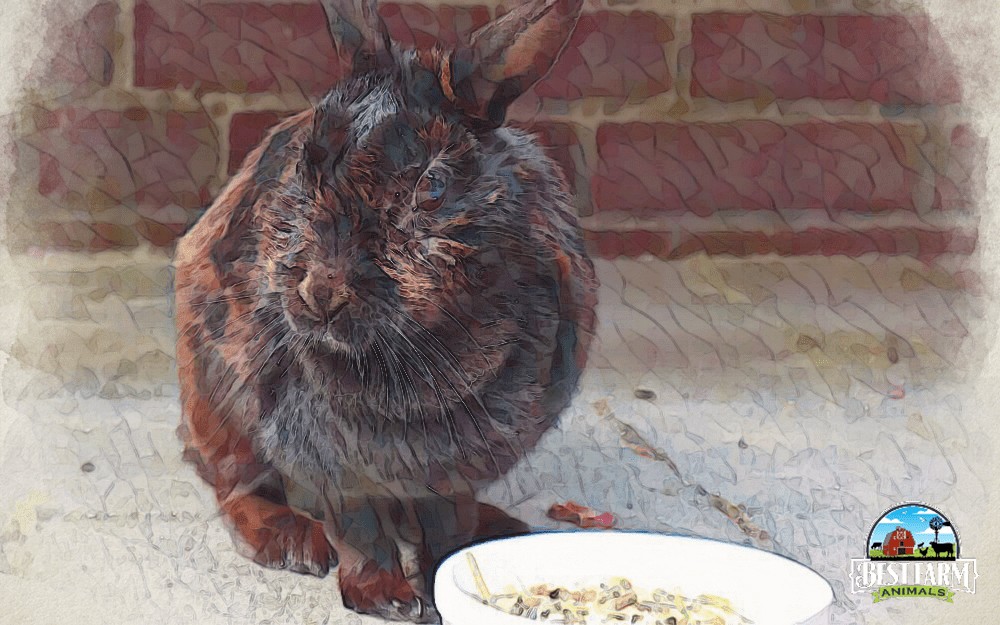
1. Bunnies Die All of a Sudden Because of Heart Attacks
Rabbits are known for their sensitivity, which is an important survival instinct for the wild, but can cause issues in captivity. Their reactive nature is apparent with the prevalence of heart attacks among baby rabbits.
Heart attacks are most commonly caused by fright, which is an intensely startling moment. Often, predators are the culprits responsible for instilling fear in baby rabbits.
To address these “fright” attacks, keeping the enclosure safe from dogs, cats, or wild animals is important.
Unfamiliar people, animals, and foreign objects can cause your rabbit to panic. Encourage small children not to chase rabbits with their hands or try and catch one to hold who seems afraid.
Baby rabbits that feel as though they are being trapped will quickly become panicky.
In addition, the smoke from your neighbor’s bonfire, loud gunfire, or fireworks might stop your rabbit’s heart.
Occasionally, heart attacks happen due to natural causes. This occurs when a rabbit is born with a weak or underdeveloped heart.
While little can be done to prevent genetic deformities, keeping the mother healthy and well-nourished is beneficial to ensuring the baby’s hearts are fully developed and strong.
2. Baby Rabbits Can Die From Cold
The environment baby rabbits are kept in is very important for their well-being. Although rabbits are designed for cold weather, baby rabbits cannot withstand extremely cold temperatures.
That’s because they are born hairless and unable to retain their body heat long enough to keep their internal systems operating properly. If the kitten (baby rabbit) becomes too cold, it can become lethargic and motionless.
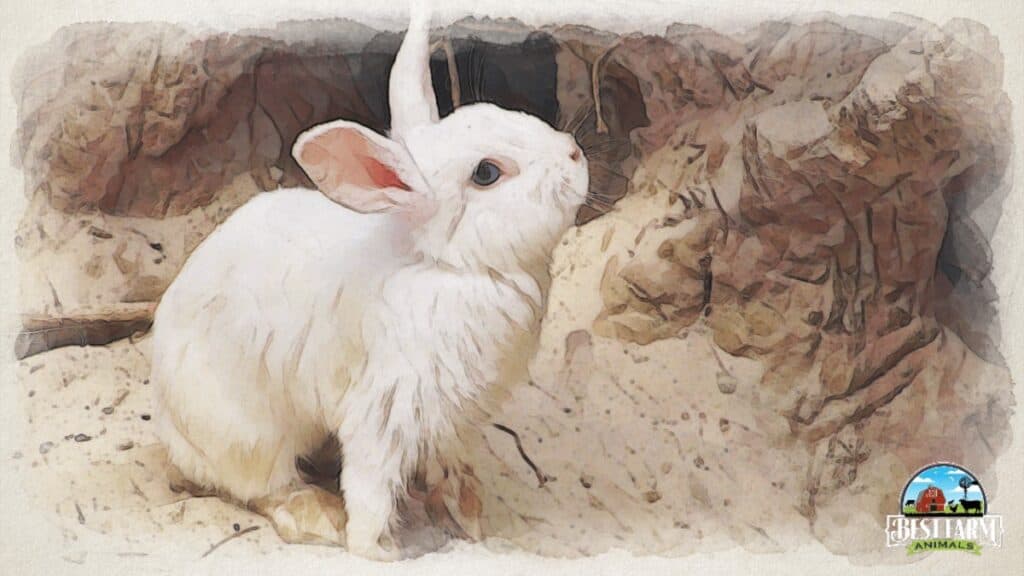
Does, or female rabbits, (for our purposes “mama” rabbits) sometimes don’t realize the danger of giving birth in an open area. There’s danger even if that area is just the outer side of the enclosure away from the shelter of the hutch.
A cool breeze can chill a tiny rabbit’s body quickly.
If you live in a cold area, keeping the rabbits indoors until they are older and their bodies hardier is best. While cold is the main struggle for baby rabbits, extreme heat should also be avoided.
3. Overheating in Baby Rabbits Can Happen Often
While a cold baby rabbit is a threat, bunnies can also die in the heat. A baby rabbit that’s not moving might have died from extreme heat. Sometimes, a baby bunny will lie on its side and not move because of heat stroke.
For your baby rabbits to be comfortable, the temperature of their environment should be between 60°F and 70°F (16°C and 21°C). Extremely high temperatures can kill your rabbits. Temperatures above 77°F (25° C) can lead to hyperthermia (overheating) in rabbits.
To prevent overheating, keep the rabbit where it can move from the sun to shade when they feel hot, especially if the cage is next to a window. Provide them plenty of water and don’t overfeed them.
Signs of overheating include:
- Warm feet and ears
- High breathing rate
- Not eating
- Open-mouth breathing
- Restlessness
- Unresponsive/dull
- Uncoordinated
- Collapse
- Blue-tinged nose and mouth
- Blood-tinged discharge from mouth or nose
- Seizures
- Death
If you suspect your rabbit is suffering from hyperthermia, you must act quickly to save her life by taking steps to cool her body.
4. GI Stasis In Baby Rabbits Results in Not Eating
Baby bunnies can go without eating food for up to four days. But once they have a GI Stasis disease, bacteria will start to compile in a bunny’s gut, which causes them pain and makes them feel bloated.
Because of GI Stasis, the baby rabbits won’t feel good, and won’t feel the need to eat or drink as they normally would, leading to issues like dehydration to complicate their health.
Thus, baby bunnies will not move from their position because they also won’t have the energy to do it. Rabbits with GI stasis may have a bloated or swollen stomach from backed up stool.
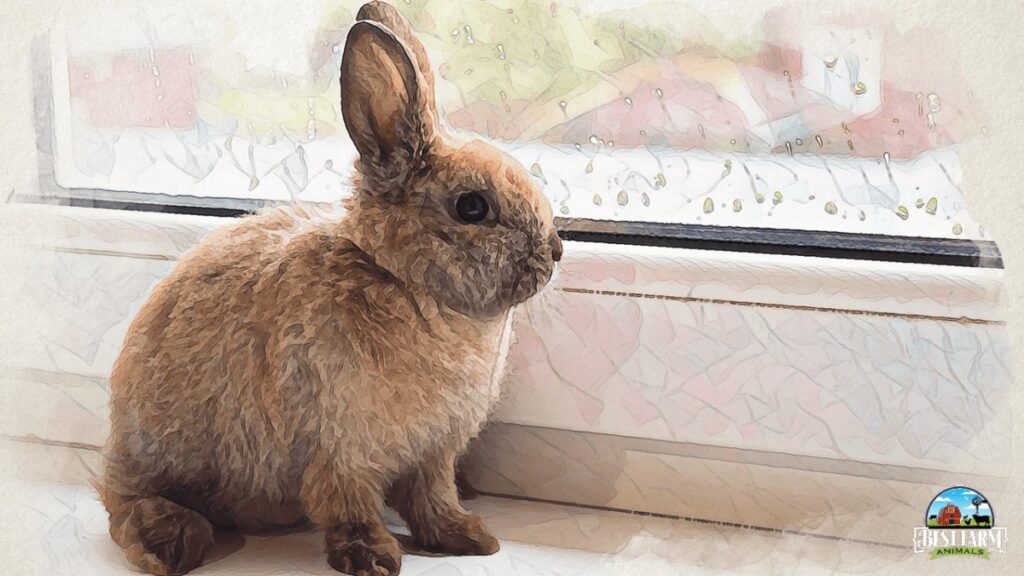
GI stasis is common in all rabbits, even baby ones, but can be quite serious if not addressed quickly. In GI stasis, a rabbit’s digestion process slows way down, making it difficult for food particles to move through the system.
As this occurs, bacteria start to compile in their gut, which causes them pain and makes them feel bloated.
Because they don’t feel good, they don’t need to eat or drink as they normally would, leading to issues like dehydration to complicate their health.
Since too many carbohydrates such as those found in pellet feed are the leading cause of GI stasis, it can be prevented with dietary adjustments in older rabbits.
However, with baby rabbits, monitoring their milk, water, and then food intake is important to know if something is off intestinally.
5. Your Bunny Gasps for Air If It’s Choking or Poisoned
At around three weeks, even though they are not weaned, you will likely notice your rabbit chewing on solid foods. They are becoming curious about dietary options and ready to add some new things to their palate.
But watch carefully for if they start choking or gasping for air.
In this phase, their curiosity can be especially dangerous as they often ingest poisonous objects or sharp objects.
Baby rabbits can die from poisonous objects like seeds and pits from fruit, iceberg lettuce, rhubarb, and avocados. Sharp objects can be splintered pieces of wood or even cardboard or plastic from their cage.
Even if it does not appear sharp, something with an unusual shape or texture could prove very sharp against a baby rabbit’s throat and stomach.
It may get lodged during a swallowing attempt or create a blockage after being swallowed.
To prevent this from occurring, “baby (rabbit) proof” the area where your litter is kept to limit their ability to reach poisonous or foreign objects.
Like human children, their eyes are now open and they are ready to explore without realizing the consequences.
6. Dehydration is Among The Leading Cause of Death in Bunnies
If you find a dead baby rabbit in it’s hutch- check to make sure they still have clean water they can reach. As early as two to three weeks, bunnies can die of dehydration.
During the first few weeks of your rabbits’ life, they drinks only their mother’s milk. But, they will soon need water as well.
Sometimes they don’t consume the amount of water their body needs. When this happens their overall health rapidly deteriorates.
To prevent dehydration, consider how you are providing water to your rabbit. Some rabbits won’t drink out of a water bottle at all. Others require some encouragement.
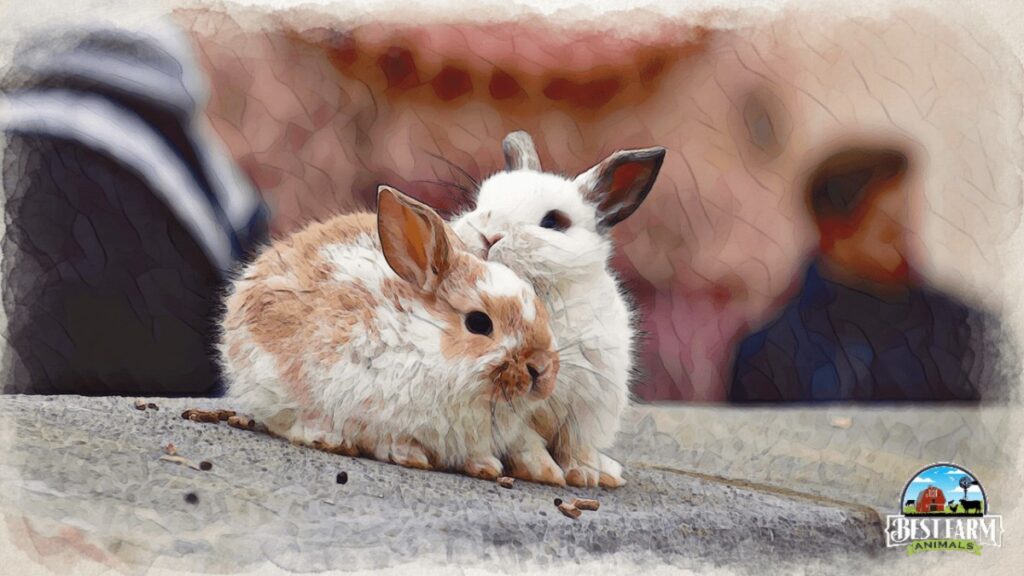
Smear banana onto the nozzle as an enticement. Other rabbits won’t drink the water if it isn’t fresh, or don’t like it to be warm.
If your baby rabbit is listless, has crusty eyes, dark-colored urine, or hard feces, they are likely dehydrated.
Give them some Pedialyte to help get their fluid level back to normal. The unflavored Pedialyte diluted with water is a good option to prevent stomach upset as the dilution will balance out the sugar content in the Pedialyte.
If you’re unable to access Pedialyte and need a quick solution, adding salt and sugar to water will also work. Depending on the state of your baby rabbit, you will likely need to use a medicine dropper to administer the fluid to them.
7. Baby Rabbits May Die After Birth Because Of Their Mother
Unfortunately, the mothers are sometimes the cause of death for newborn baby rabbits when they squish their babies. Doe’s experiencing their first litter may not have great instincts about navigating life with babies.
Especially in the early days, baby rabbits can be squashed by a mother’s foot or crushed by her body.
They can be suffocated by being backed into a corner of the closure behind her body. Occasionally, external objects will fall on and crush a baby rabbit.
But, mothers remain the leading cause of blunt-force injury to baby rabbits.
To prevent this, monitor your doe and her babies closely. Consider building an enclosure with ledges around the sides down low so she cannot squish them directly up against it.
8. Baby Rabbits Die Due to Unsanitary Conditions
Unsanitary conditions are the root of all evil concerning baby rabbit health. It breeds parasites, disease, and in connection death. Baby rabbits are highly susceptible to illness when their bodies are first adjusting to the world.
When urine builds up, ammonia builds.
That’s dangerous for rabbits in the same way the fecal waste is. Many different cleaning products are on the market now to help with this process, cage liners and other time-saving tools.
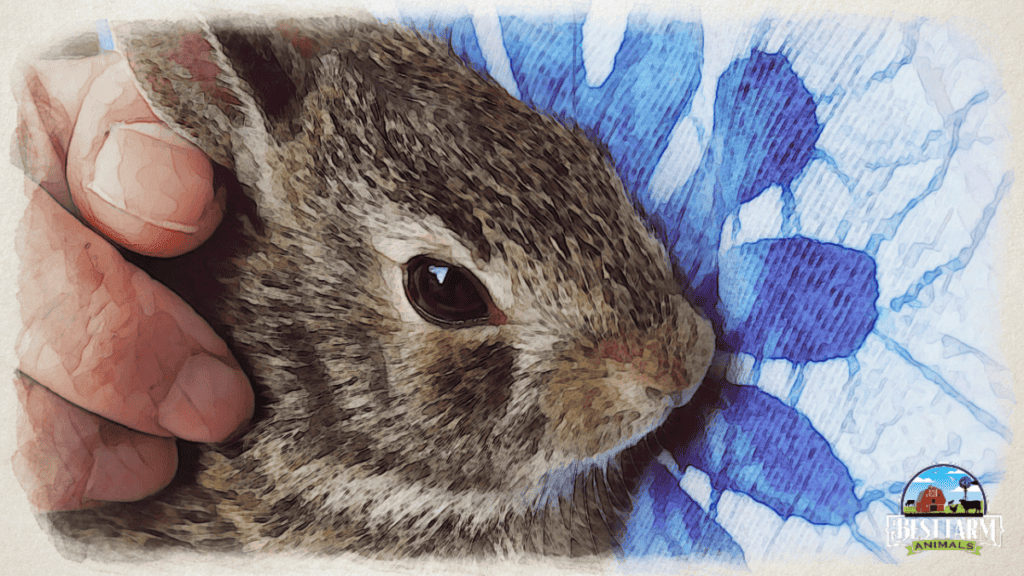
Daily cleaning is important and should include washing out water containers, picking up leftover food, and emptying any waste.
Bedding should be changed frequently and should be purchased from a reputable source as bacteria can live in bedding as well.
Once a week the whole cage should be deep cleaned with a rabbit-safe cleaner. While this may seem like extra work, it will save you money in vet bills and likely save the lives of your baby rabbits.
9. Decrease Bunny Death by Ensuring Babies Have Sufficient Milk
A mama rabbit’s milk is full of nutrients needed for the baby rabbit to grow and thrive. However, most mother rabbits don’t produce much milk in the first few days after giving birth. Your mamma rabbit should have enough milk for her litter to feed once every 24 hours and stay alive.
Rabbit milk is extremely high in calories. By the fifth day, her milk production should increase greatly. However, if it is a large litter or the mother is malnourished there may not be enough milk.
To prevent insufficient milk production from occurring, be sure your mama rabbit is well-nourished and hydrated and has plenty of access to leafy greens and vegetables.
Make sure you are not overbreeding her. Don’t breed her at too young or too old of age.
If you are unsure of your rabbit’s age you can get your veterinarian to estimate based on her teeth and nails. If you have a doe who does not produce enough milk, removing her from your breeding program may be best.
Pay close attention to ensure the babies are nursing and appear healthy and satisfied. If you suspect they are not getting what they need, intervening is important.
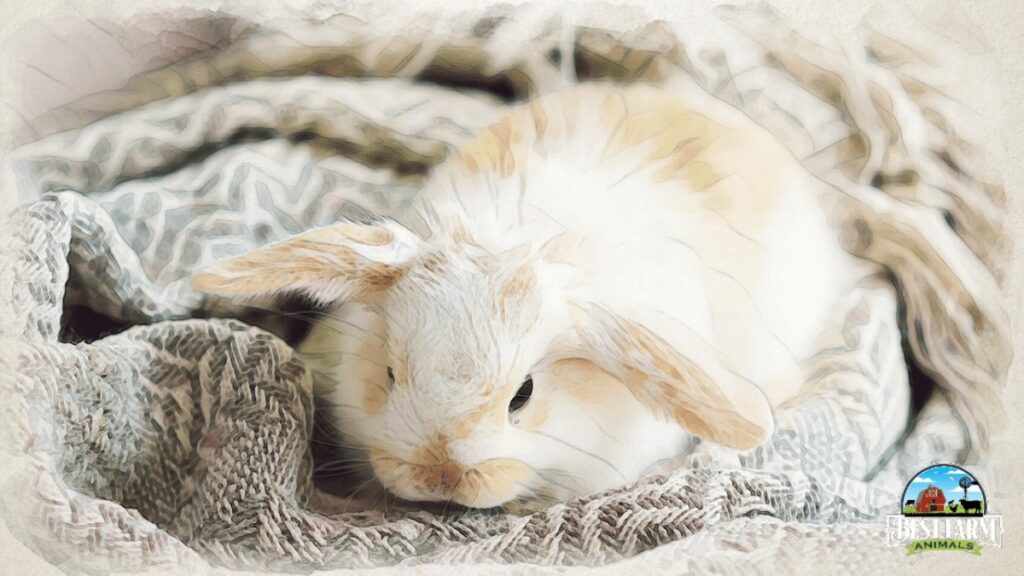
Rabbit milk supplement is very hard to find.
But, a kitten milk replacer is a good place to start. To balance out the calorie content you can add heavy whipping cream.
As babies age, solid foods like Timothy hay can slowly be introduced.
10. Baby Rabbits May Die Because of Parasites
Baby rabbits die of parasites also. Not only can baby rabbits become parasite carriers on their own, but they can also get a parasite from their mother during pregnancy. Coccidiosis and E. Cuniculi are two common parasites.
Coccidiosis is an intestinal parasite that produces the bacterium E. coli.
These parasites initially live in the intestine but in severe cases will travel to the liver. While some rabbits succumb to death by parasites rapidly, others show few symptoms and can overcome them.
How do I know if my rabbits have parasites?
Rabbits that struggle with parasites may show signs. These signs to look for include blood or mucus in the feces, lack of appetite, diarrhea, lethargy, stomach pain, and pale gums. Dehydration usually occurs due to loose stools and loss of fluid.
When you have multiple babies in one area, monitoring waste and knowing who has the concerning stools is more difficult. If one rabbit appears sick, separate it immediately and monitor the others
Coccidiosis can infect a baby rabbit by transmission through pregnancy but is mainly spread through fecal contact, which is often due to unsanitary cage conditions.
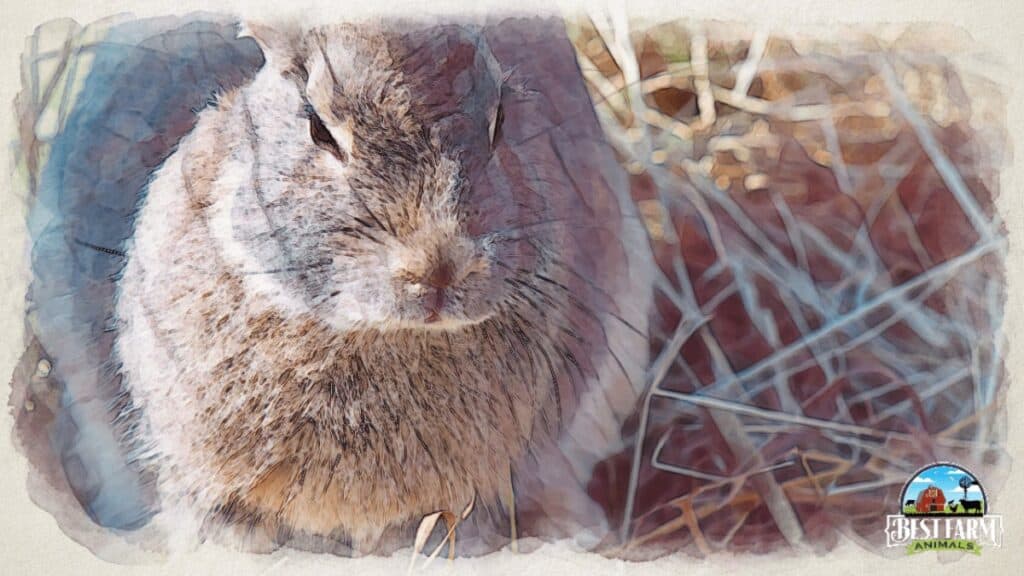
The buildup of waste and wet bedding is a breeding ground for bacteria, and living among bacteria means they are quickly internalized in air, food, and water.
Even the way rabbits clean themselves can sometimes lead to bacteria transmission.
There are ways to prevent the spread of coccidiosis, including feeding hay from raised containers or racks and getting quality bedding for the cage. For all parasite prevention, it is important to quarantine any new rabbit before adding them to your existing rabbit enclosure.
11. Pneumonia is a Common Reason Behind Dead Baby Rabbits
Diseases and viruses also kill rabbits, with pneumonia being the most common. Pneumonia plagues baby rabbits in three forms: bacterial, viral, or non-infectious.
The presence of a bacterium such as chlamydia, staphylococcus aureus, or Pasteurella multivitamin causes bacterial pneumonia.
Viral pneumonia is caused by a virus such as the herpes virus, myxoma virus, or pleural effusion disease. Non-infectious pneumonia has its roots in allergies, dirty environments with high levels of ammonia, and air debris such as smoke, dust, or aerosols.
Baby rabbits battling pneumonia will be lethargic and have pale or bluish gums. Some will display coughing, sneezing, signs of anemia, open mouth breathing, and reduced appetite. Rabbits hide their weakness to protect themselves from predators.
So, by the time symptoms are noticeable, pneumonia has already set in and caused the characteristic inflammation of the lung.
Preventing pneumonia is directly related to maintaining a sanitary environment.
It is affected by a nutritious diet and ensuring baby rabbits are protected from cold and wet temperatures.
What To Do When Baby Rabbits Died?
Removing the dead baby rabbit’s body from the nest is the best thing you can do when you found one. Mother rabbits don’t usually remove the body; rabbits might even eat the dead baby rabbits.
Make sure to clean the nest once you have encountered a dead bunny.
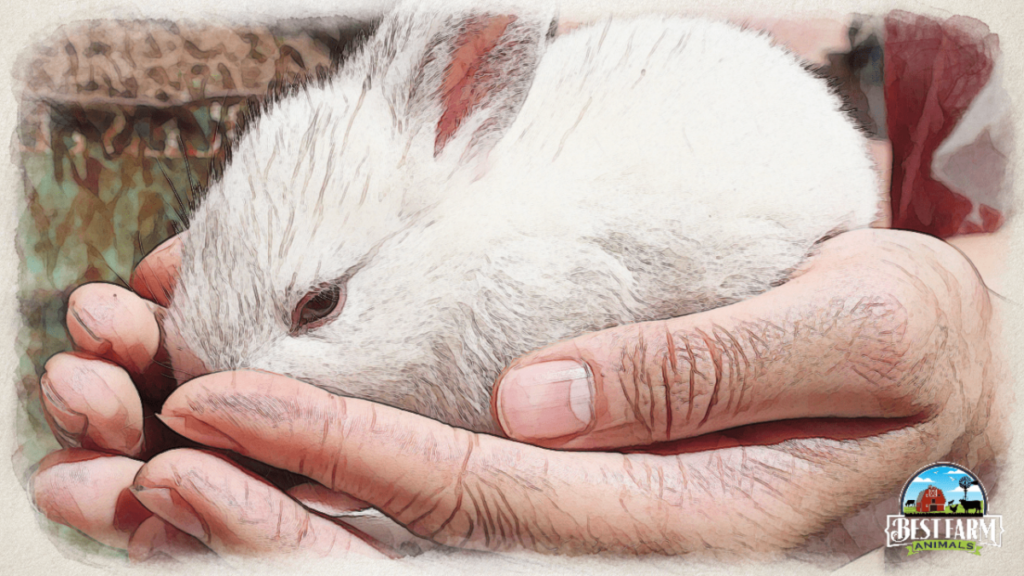
It’s unhealthy for the other bunnies and the mother rabbit to be with a dead rabbit because of its foul smell.
Bacteria will also soon appear, if not cleaned properly.
How Long Do Baby Bunnies Live?
A baby bunny can live between eight to 12 years. However, the average pet rabbit lives a few years shorter than that, between five and eight years due to accidents.
The average rabbit lives under two years in the wild before succumbing to predators or injury.
If you want your rabbits to live longer, provide them with suitable housing, the right diet, adequate exercise, and a companion. Also, protect them from extreme weather, pests, contagious diseases, predators, or anything that can injure them.
Ensure their environment is clean and the temperature is right. You can also take them to a vet once or twice a year for a medical examination.
Baby Rabbits Dying FAQs
Baby rabbits don’t die without a cause, although sometimes it’s difficult to determine why. Bunnies die most often of stress, or heart attacks, cold, overheating, eating issues, or infection.
An infection, choking, suffocation, pests, worms, and injuries are other causes of baby rabbit deaths.
Do baby bunnies play dead? Bunnies will play dead to avoid dangerous situations. This is because they are easily frightened and spooked. When a rabbit is terrified, it will play dead by lying on her back and remaining still.
A rabbit can also play dead after an exercise, when contented, or just sleeping. However, a rabbit will not play dead when a predator attacks. Rather, she will try to escape.
How to revive a dead baby rabbit? It is impossible to bring a dead baby rabbit back to life, there are steps you can take to revive an almost-dead rabbit. Your best bet is if the rabbit “died” of coldness. You can do so by warming up the rabbit with your body, a warm towel, or warm water.
And you must act fast before the rabbit passes on. It will be too late if the bunny’s head is already arched backward and her mouth is open.
Conclusion
All ten of these common causes of sudden death in baby rabbits are closely linked. Some lead to each other, like unsanitary cage conditions and parasites, or GI stasis and dehydration.
Others can occur indirectly and be easily avoided, like cold temperatures and heart attacks. Remember that with aggressive symptoms you should consult your veterinarian to ensure the situation does not continue to escalate.
Regardless of your situation, familiarizing yourself with these issues can help save your baby rabbits’ life, and likely keep their mother and any other rabbits on-site healthier and happier moving forward.
Recommended Rabbit Supplies
This list contains affiliate products. Affiliate products do not cost more but helps to support BestFarmAnimals and our goal to provide farm animal owners with accurate and helpful information.
Housing: If your rabbit is indoor, you’ll need a cage, a hideout (to keep your rabbit from death by heart attack), and a space for it to get exercise and spend time with you. If you don’t want to let it run free in your house, this animal playpen provides space and keeps your rabbit from hiding under your couch.
If you keep your rabbit outdoors, an outdoor hutch that provides space and protection from predators is needed. (I’d still keep mine in a barn for further protection from the elements.)
You’ll also need bedding, toys, a grooming brush, and treats for your little friend. A litter box is important because rabbits can be potty trained. Timothy hay is the best kind of hay for rabbits as alfalfa is too sweet. Don’t forget a water drinker. I like the half-gallon waterer because it can cover two rabbits for several days. Pair it with a food bowl or a food manger (a little cleaner) and you’ll be set up!
If you want to treat your bunny to entertainment, a cat tower, a treat ball, or bunny toys all work wonderfully.
Finally, if you plan on taking your rabbit with you on trips, you’ll need a carrier. Here’s a small carrier or larger carrier that work great for occasional travel. If you travel a lot, you might want the carrier that’s rated #1 in safety for safe travels
Lastly, I use this odor eliminator for accidents and to wipe out the bottom of the cage and litter box when I clean it.

